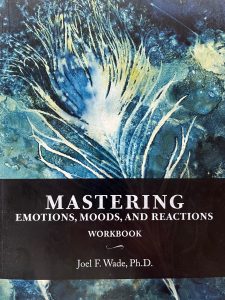Worry is a troublesome activity. And we can find ourselves practicing this ancient ritual at the least opportune times: getting ready for an important presentation, anticipating the response of other people to something we want or need, hoping for a positive outcome in a complex situation… and all too often at two or three in the morning.
We tend to worry about the things we can’t control. Money is often at the top of the list. We can’t control how our investments will do. We also can’t control politics, the weather, or future events.
We can’t control the response to our presentation, the receptiveness of others to what we want or need, or the outcomes of many situations… and we certainly can’t control much of anything in the middle of the night, when we should be sleeping soundly.
When we’re dealing with things we can control, we don’t usually worry about them, we just do them. We prepare diligently for our presentation, we ask for what we want as clearly and respectfully as possible, and we bring our very best to what we do, giving us the best chance at a positive outcome – but the outcome itself is often not in our hands.
Ideally, like the stoics recommended thousands of years ago, we would spend all our time focusing on only those things that we can control, and none of our time worrying about the things we can’t control. But anyone with ambitions, dreams for the future, or children knows that’s just not possible.
So let’s look instead at how we can worry more effectively:
First of all, we do tend to have what we can and can’t control mixed together in our minds. It can help to separate them out.
A simple but effective way to do this is to write them down. Take a big pad of paper, draw a vertical line down the middle of the page, making two columns. Choose an issue or a facet of your life that is troubling you.
In one column, write down all the things regarding that issue that you can’t control. In the other column write down the things regarding that issue that you can control.
Then, take a good look at the column of things you can’t control, and acknowledge that, by definition, there’s really nothing you can do here. Accept the truth of that as deeply as you can, and bring most, if not all, of your attention to the other column.
From the column of things you can control, glean from that list tangible actions you can take that will help your situation. Be as specific as possible, identifying as many actions as you can. Make sure that each of them is doable – preferably in small enough chunks that you can imagine yourself doing and finishing each one in a sitting.
Next, each day, take from that list one or a few things you can do the following day.
Now you have the beginning of positive momentum toward genuinely tackling whatever it is that’s been troubling you.


Recent Comments